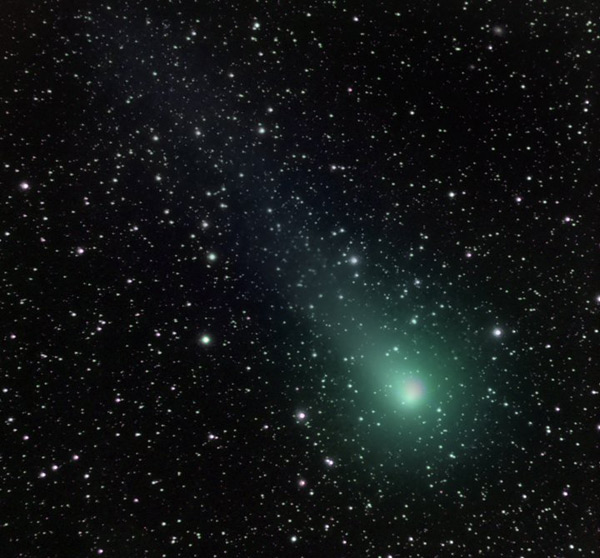A Winter Comet Treat
 Photo courtesy of NASA
Photo courtesy of NASA
Viewers living in the Northern Hemisphere looking for a winter astronomy treat to keep them entertained through the cold January nights should be able to get a look at Comet C/2009 P1 (Garradd). The Northern Hemisphere night sky hasn't played host to a bright comet since Comet C/1995 O1 (Hale-Bopp) in 1997, although a few were bright enough to view with binoculars. This month viewers have a very good chance of viewing Garradd through binoculars near the end of December and beginning of January.
Comet C/2009 P1 was first discovered by Australian astronomer Gordon Garradd in August of 2009. Perceptive people new to astronomy will of course note the similarities in the name of the name of the comet and the discover, along with the date of year of discovery. Garradd is expected to reach perihelion, its closest point to the Sun, on December 23, but viewing should be easier in January. During this time Garradd will be closer to Earth, so it should appear brighter to viewers and will be higher in the night sky.
Expectations are of a 6th magnitude peak for Comet C/2009, which is well within the reach of even 7x50 binoculars, depending on viewing conditions. Viewers in dark viewing spots away from interfering light sources might even be able to see Garradd with the naked eye at this magnitude. Garradd could even reach magnitudes above 6th, which would allow for some spectacular viewing.
Comet C/2009 can currently be viewed more than halfway to the zenith in the predawn sky each night, if you take your time and pay attention.
This is Comet Garradd's first visit to the inner solar system, as far as astronomers know. The brightness of comets visiting the inner solar system is also very hard to predict, so you could get a good chance to view a comet we won't see for a while. Comets like this often appear very bright during approach to Earth, but then fizzle out as they disappear into the darkness of the outer solar system. The great thing is astronomers really have no idea what kind of show Comet C/2009 is going to put on, so it's a good idea to keep watching each night.
In : comet C/2009 P1
